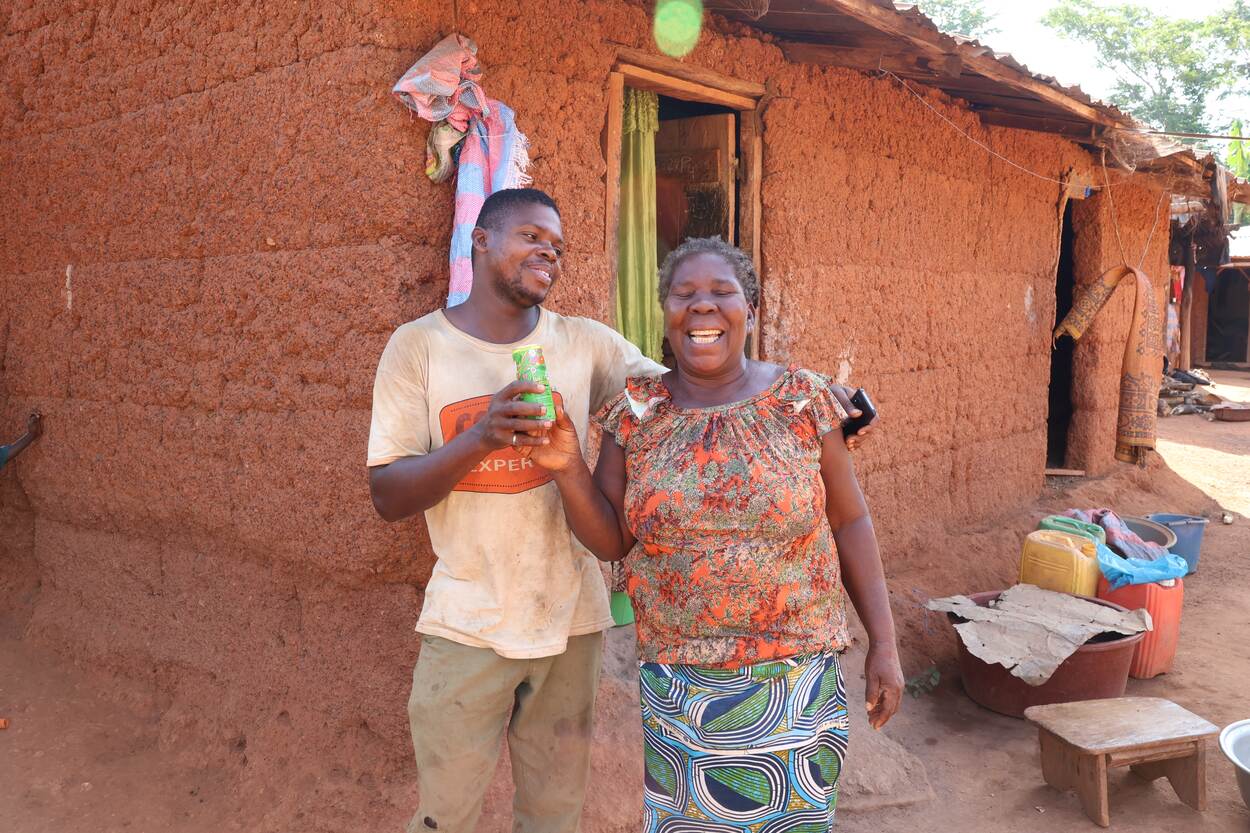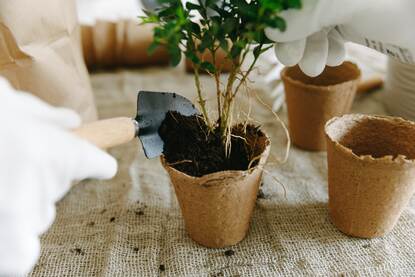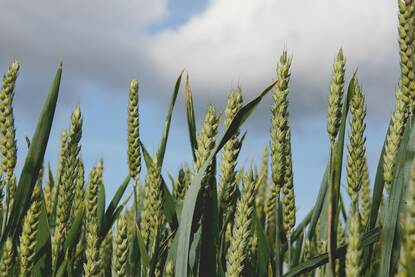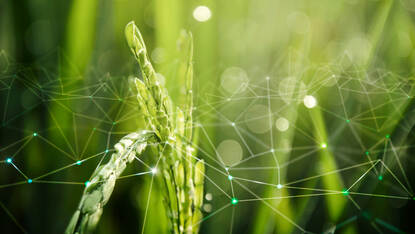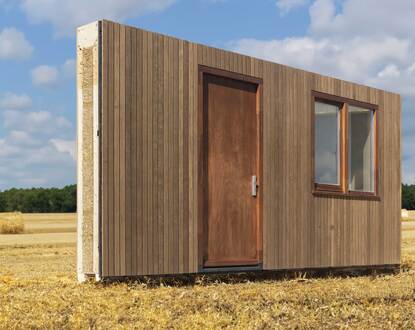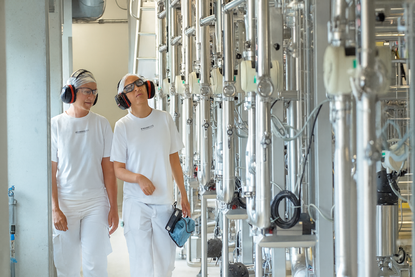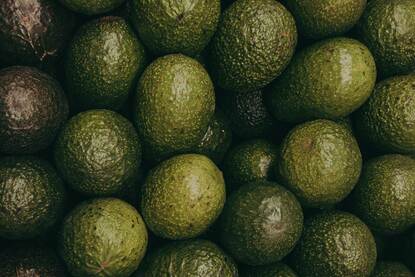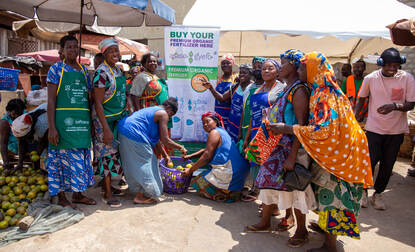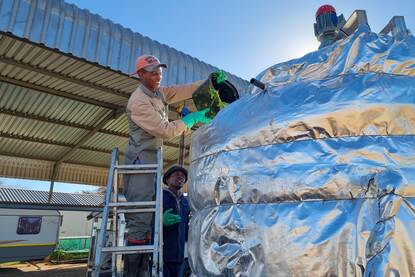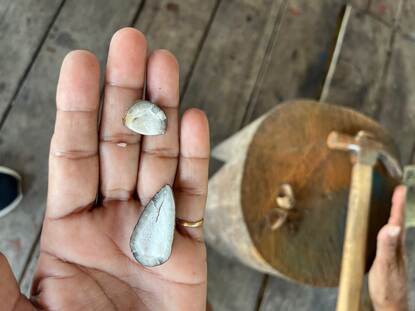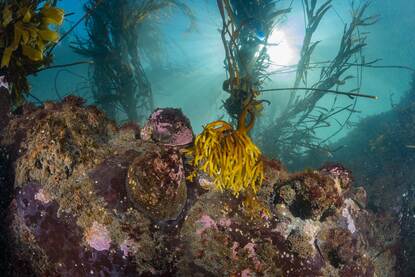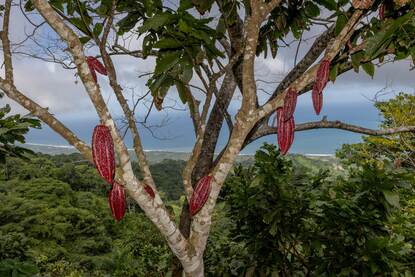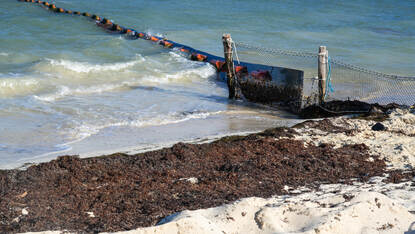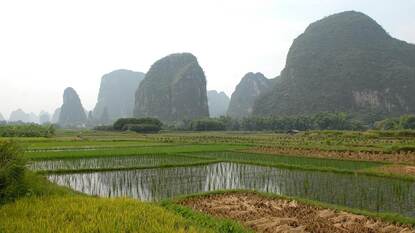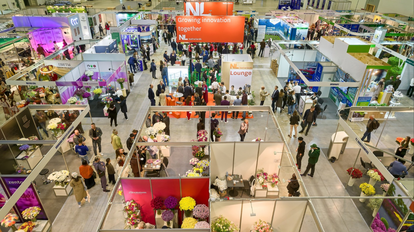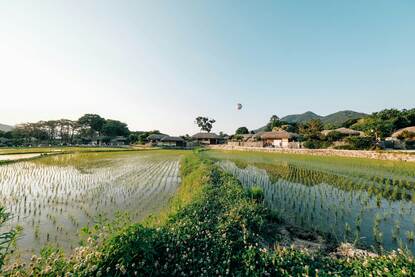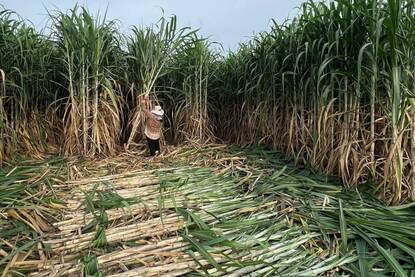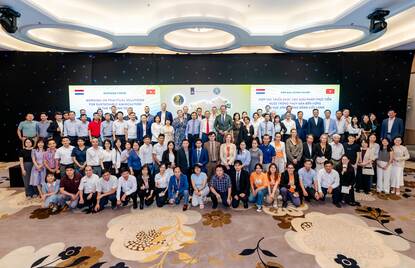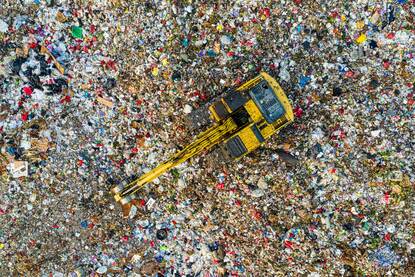Foto Cocoa farmers proudly showing a can with Kumasi juice. Source: Kumasi
Côte d’Ivoire, the world’s top cocoa producer, is rethinking how it uses its resources. Rising costs for inputs and global market pressures make local value creation more urgent. By 2030, the government aims to process all cocoa beans before export, a goal that is also inspiring innovation in other agricultural sectors. For Dutch companies, this growing bioeconomy opens new opportunities for collaboration.
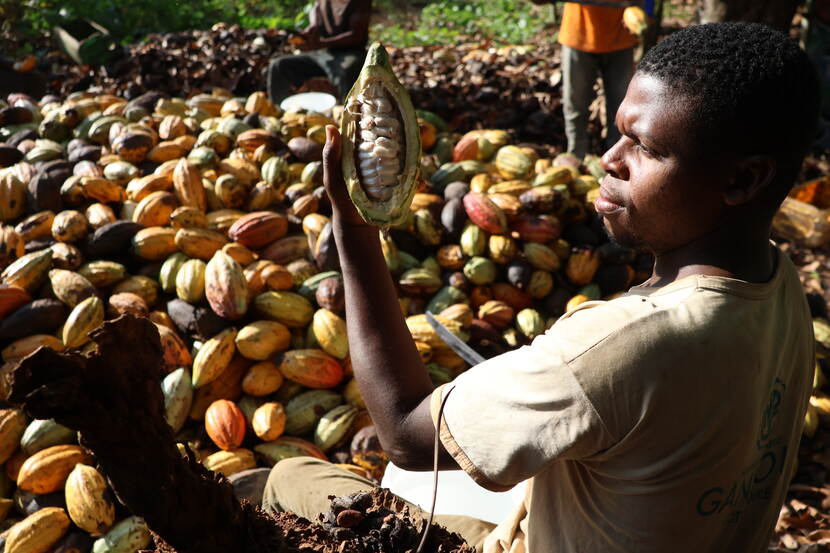
Renewable biological resources are key for West African countries like Côte d’Ivoire to become more independent and self-sufficient. In Côte d’Ivoire, the National Development Plan (PND) 2021–2025 places particular emphasis on adding value to the country’s natural resources and ‘waste’ streams. In terms of regional development, for instance, the aim was to ensure an adequate and sustainable valorization of territorial resources and potentialities. The upcoming PND (2025-2029) will focus – even more – on the increase of agricultural productivity and industrialization while the (re)use of organic sources will remain high on the agenda.
The Netherlands has been working with Ivorian partners over the past years to co-create this bioeconomy, especially in making full use of cocoa beans and their surrounding tissues. These efforts have resulted in the launch of the Orange CocoaPro program and the creation of three novel bilateral partnerships that focus on producing cocoa mass, cocoa juice and biochar:
-
CocoaTechd’Ivoire (beans to cocoa mass) with Cadesa, Eco2, CDC, JMK, Larive International, LC Packaging, Duyvis Wiener, JS Cocoa, Control Union;
-
Cocoa Zero 2 (husks to biochar) with Lono, Spaak, TRG, Kumasi, ESP, ETG / Beyond Beans.
-
Cocoa Zero 1 (pulp to juice) with Kumasi, ETG / Beyond Beans, Tony’s Chocolonely Foundation;
‘The Netherlands and Côte d’Ivoire are co-creating a bioeconomy, especially in making full use of cocoa beans and their surrounding tissues’
Making cocoa business juicy
The white pulp around cocoa beans is normally discarded. While some producers – like the cooperative Covima near the city of Bouaflé, which is part of the Marahoué region in the central part of the country – are aware of the potential to turn the pulp into fruit juice, no commercially viable enterprise has been established in Côte d’Ivoire until recently.
The Dutch company Kumasi, which already exports cocoa juice from Ghana to the Netherlands, decided to invest in local production. Together with several Dutch and local stakeholders such as ETG, Beyond Beans Foundation and Tony’s Chocolonely, they have built the first industrial production plant in Daloa. The fruit juice – with a flavor like lychees – is expected to reach Dutch supermarket shelves soon, providing cocoa farmers with an extra revenue stream.
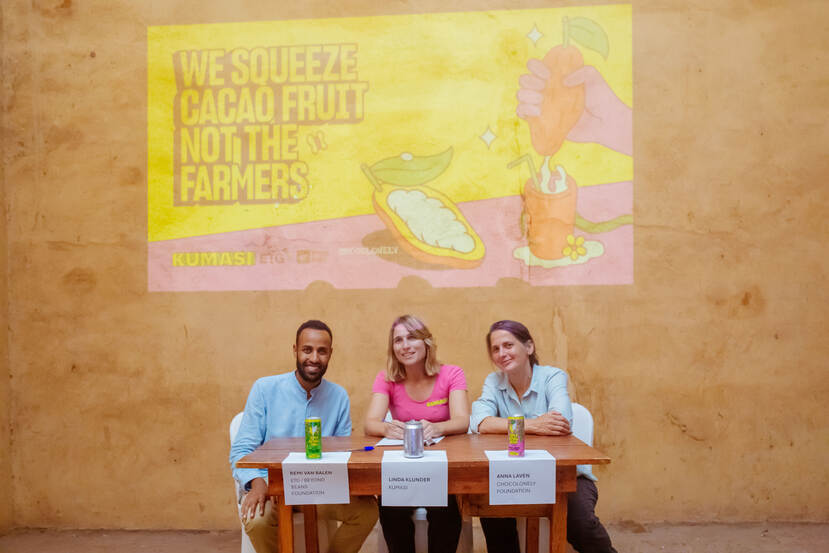
Turning husks into biochar and more
Cocoa pod husks are a hot topic in the circular economy of cacao as it is two-thirds of the harvested fruit and up to ten times the mass of the dried, fermented beans. In the major cacao-producing countries of West Africa there have not yet been industrial business models to add value to this material, so it rots in the fields where it can become a source of methane, twenty times more potent than CO₂ of a greenhouse gas. Instead, the carbon contained in these husks can be ‘fossilized’ into biochar. This is what the Dutch-Ivorian company LONO, specialized in implementing scalable circular economy value chains from agricultural waste, is working on together with Beyond Beans Foundation to link with the farmers and BioYam to blend the biochar with compost.
What is more, before fossilizing the carbon into biochar, chemicals can be extracted that the food industry needs. In the same RVO-funded project, SPAAK is exploring how to retrieve sweeteners (for chewing gums), pigments, and fibers and generate extra income for farmers. Zero-waste cacao production is becoming a reality.
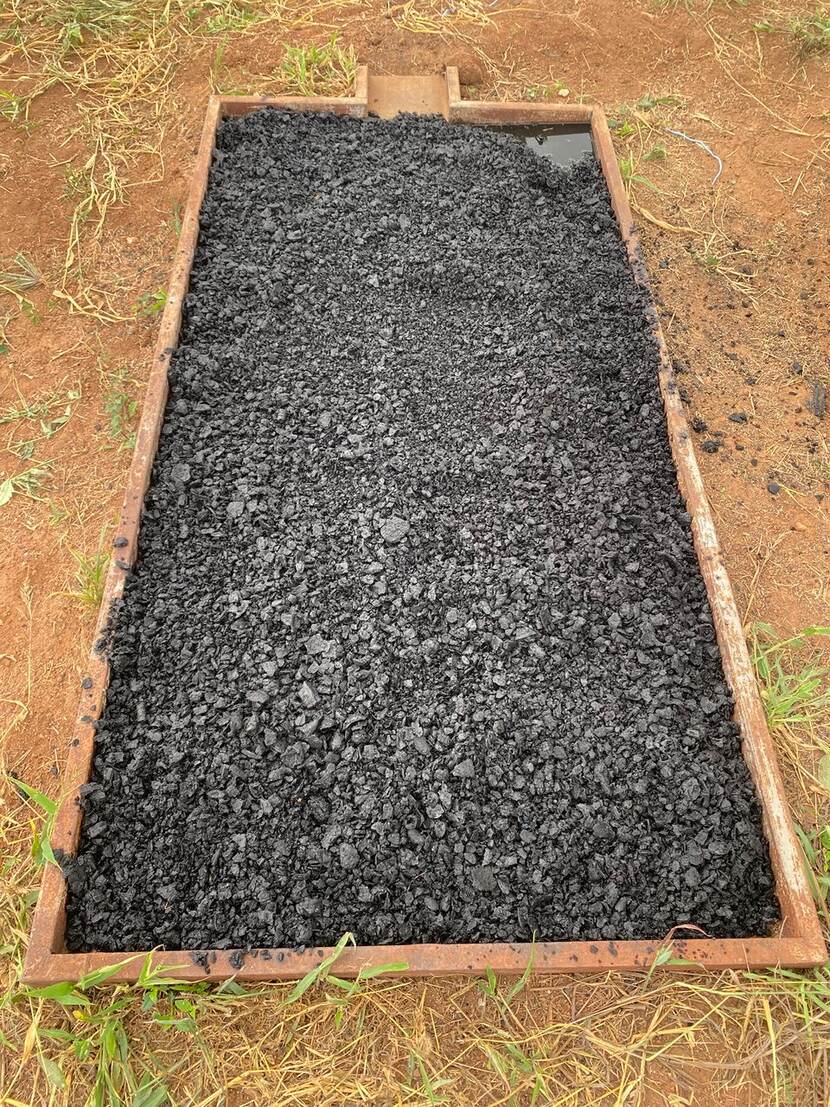
Closing other circles: from oyster mushrooms to fly ‘frass’
The Ivorian Prime Minister’s office has a unit called Cellule Economie Circulaire dedicated to the transition to a circular economy. One focus area is local mushroom production, a rapidly growing market if you look at the availability and affordability of oyster mushrooms in supermarkets. Several businesses, including the start-up YEYOLA that partnered with Orange Corners (which supports young entrepreneurs to grow their businesses through incubation and acceleration programs), are growing mushrooms in and around Abidjan.
A current challenge is the local production of spores, most of which are still imported from Ghana. This could be an opportunity for Dutch companies to partner with Ivorian businesses.
Another circular opportunity is the processing of organic waste using Black Soldier Flies. The larvae are an alternative feed for poultry and aquaculture, while their frass (droppings) is a rich fertilizer that supports crop production. Start-ups like Bioani and Living Soils are rapidly expanding decentralized production sites.
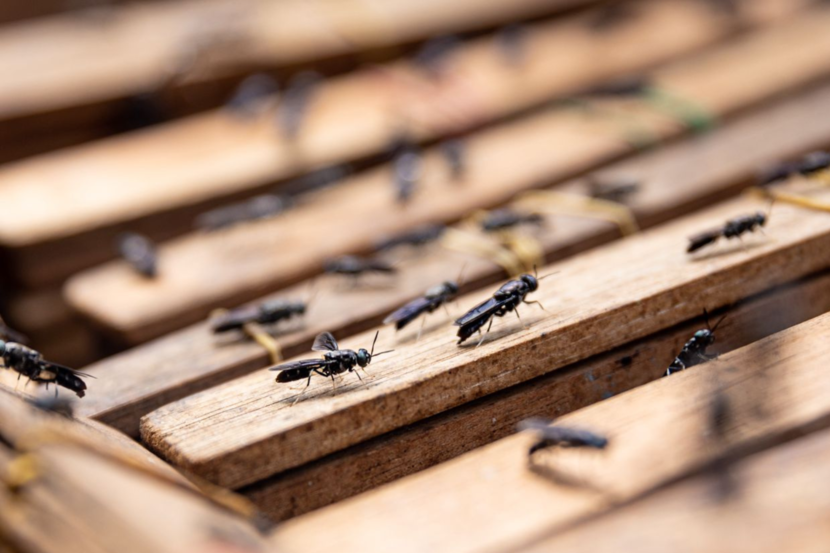
Long-term perspective
In the long term, economies like Côte d’Ivoire’s can become more resilient by making better and more sustainable use of biological resources. The Netherlands and the Netherlands Agricultural Network (LAN) team at the Dutch Embassy in Abidjan facilitate and promote partnerships with Dutch players that provide such solutions. In September 2025, for example, a brochure – soon available online – was pre-launched with Netherlands Food Partnership during the Africa Food Systems Forum 2025 presenting a catalogue of Dutch companies that supply or want to supply sustainable agri-inputs in West Africa. The updated version of the brochure will be officially launched during the A la Ferme Orange event on 20 November 2025 in Dakar, Senegal.
The LAN team in Abidjan and Dakar will continue to put organic inputs on the agenda. It will do so by promoting Dutch companies in Cote d’Ivoire and Senegal, working together with the Soil Values programs to put more emphasis on organic fertilizers, identifying (regulatory) barriers and – inspired by Brazilian policy changes that favor the quick approval of new biological inputs – proposing solutions to remove these barriers.
More information
Do you want to know more about the use of cocoa beans, local value creation and bioeconomy in Côte d’Ivoire? You can visit the country page of Côte d’Ivoire at the website Agroberichtenbuitenland.nl of the Dutch Ministry of Agriculture, Fisheries Food Security and Nature. You can also send an e-mail to the LAN team at the Dutch Embassy in Abidjan: abi-lvvn@minbuza.nl.
